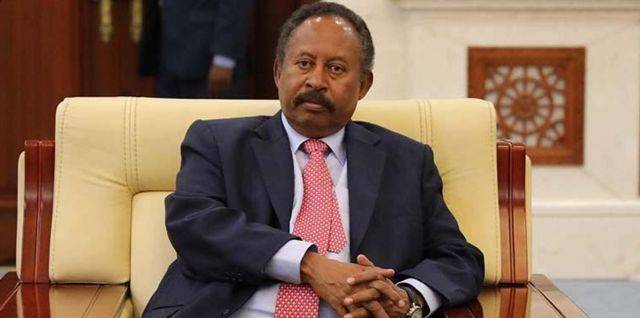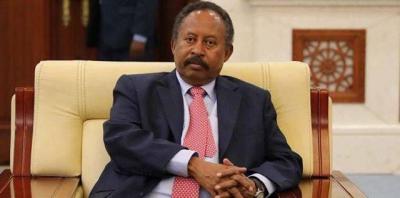Under the title "Sudan’s Prime Minister Warns of the Risks of Chaos and Civil War," Swiss Info published a report citing Reuters that highlighted Sudanese Prime Minister Abdullah Hamdok's warning on Tuesday about the dangers of chaos and civil war incited by supporters of the former regime. This warning comes as he advocates for necessary reforms to pull the country out of a severe economic crisis and stabilize the transitional phase. Hamdok made this announcement in a televised speech following days of young people wielding metal bars and sticks to barricade streets in the capital Khartoum after fuel subsidies were lifted.
Hamdok's government operates under a fragile power-sharing agreement between military and civilian factions, established after a popular uprising led to the military ousting long-time President Omar al-Bashir in April 2019. The transitional period is expected to last until the end of 2023, after which elections are to be held.
Hamdok stated that the current security deterioration is fundamentally due to fragmentation among revolutionary components, which has created a vacuum exploited by enemies and supporters of the previous regime. He emphasized that without reforming the massive security sector that expanded under Bashir during various internal conflicts, Sudan will continue to face internal and external threats.
He warned, "These fragmentations could lead us to a state of chaos where gangs and criminal groups take control, as well as exacerbate conflicts among all population groups, potentially leading to civil war."
Despite Sudan receiving international approval for economic reforms following Bashir's fall and making progress in alleviating debt burdens, many Sudanese people are facing food crises or struggling to meet their basic needs as prices soared over the past year. The inflation rate reached 397% in May, with daily interruptions to electricity and water supplies.
While protesters often utilized roadblocks in demonstrations sparked by economic or political grievances, a Reuters witness noted an increase in hostility at the barricades set up by demonstrators in recent days. The government has stated that the police and public prosecution will confront what they described as gangs involved in road closures, although police presence in the streets seemed weak.




